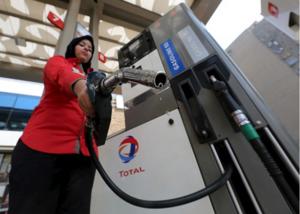Egypt plans to end fuel subsidies within three years
(Reuters) Egypt plans to end fuel subsidies within three years and is aiming to increase fuel prices to 65% of their actual cost during the 2016/17 fiscal year, two government sources told Reuters Tuesday.
Struggling to revive its economy after an uprising in 2011 shook investor confidence and drove tourists and foreign investors away, Egypt has been trying to cut spending on subsidies because they eat into its state budget.
Egypt has reached a staff level agreement with the International Monetary Fund (IMF) for a $12 B three-year loan program which is subject to final approval by the IMF executive committee.
Disbursement is linked to progress on a variety of reforms including cuts in subsidies, the introduction of value-added tax (VAT) and a shift to a more flexible exchange rate regime.
"What was agreed lately with the IMF delegation in Egypt is cancelling fuel subsidies within three years," one of the officials, who declined to be named, told Reuters.
A spokesman from the Petroleum Ministry said that "no decisions have been issued on that matter."
Gasoline in the 92-octane category is sold at 58% of its cost in Egypt while the 80-octane category is sold at 57% of its cost and for diesel it's about 53%.
Egypt lowered its spending on fuel subsidies in July 2014 as part of a five-year plan, raising prices of petrol and diesel by up to 78%, but plan was not followed through in 2015/16.
In April, government officials said there was now a plan to reduce spending on fuel subsidies by nearly 43% in the 2016/17 budget.
The cost of petroleum subsidies fell to $6.2 B in 2015/16 from $8 B the previous year. Egypt is aiming to lower subsidies for petroleum products to about $3.9 B this financial year.
Reporting by Ehab Farouk and Abdel Rahman Adel; Writing by Asma Alsharif; Editing by David Clarke and Mark Potter







Comments